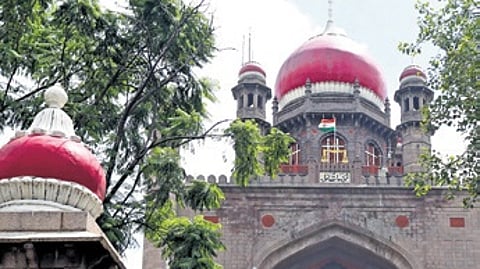

HYDERABAD: The Telangana High Court on Friday set aside a Government Order (GO) dated December 26, 2021, issued by the previous BRS administration allotting 3.7 acres of prime land in Raidurg to the International Arbitration and Mediation Centre (IAMC). The court, however, upheld related GOs providing financial support to the IAMC and requiring referral of certain disputes to the centre.
The market value of the land is around Rs 350 crore, according to sources. The then government also sanctioned a grant of Rs 50 crore for the construction of the IAMC. The foundation stone for a permanent building was laid on March 11, 2022, by the then-Chief Justice of India Justice NV Ramana in the presence of the then chief minister K Chandrasekhar Rao.
A bench of Justice K Lakshman and Justice K Sujana was hearing PILs filed by advocates Koti Raghunatha Rao and A Venkatrami Reddy questioning the legality of the GOs granting land, funding and arbitration referrals to the IAMC. The PILs said that the IAMC was a private entity receiving state support without a legal basis.
The bench held that the allotment was in breach of the 1975 Rules on alienation of state land. It ruled that land cannot be allotted free of cost to a private body unless it is for a public purpose and with the collection of market value.
The bench also noted that the IAMC was not registered under the Companies Act at the time of allotment, making the process invalid.
GOs on financial aid to IAMC legal, rules court
The bench, however, upheld two other GOs: One providing `3 crore in financial assistance to the IAMC, and the other directing state departments and public sector undertakings to refer disputes above `3 crore to the centre for arbitration. The court found these orders consistent with the legal framework and government policy aimed at promoting institutional arbitration.
The IAMC argued that it was not a private entity but a unique institution overseen by a board of trustees including Supreme Court judges, the Telangana Law minister, and the chief minister. It said government funding was transparent. The state government defended its support, referring to international practices where governments assist arbitration centres to improve dispute resolution.
The court concluded that the land allotment did not comply with the legal requirements of the 1975 Alienation Rules, citing the absence of a market value assessment and the IAMC’s lack of legal status at the time of the allotment as key factors in its decision.